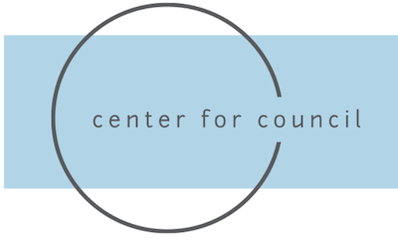|
The Council for Insight, Compassion & Resilience (formerly the Inmate Council Program) is a three-month intervention in which participating incarcerated individuals are trained to facilitate council sessions for their peers, empowering them to become positive agents of change, on the yard, and in their lives. The program contributes to a shift of culture within jails and prisons and equips participants with tools for successful reentry and reintegration into their communities upon release. After the successful 2013 launch of the program at Salinas Valley State Prison, the program has now grown to 28 California prisons and received 2020’s “Innovation in Corrections" award from the American Correctional Association. CICR’s pedagogy is based on restorative justice principles, focusing on taking responsibility for past behavior and the harm caused to victims, to others who have been impacted (friends, family, community) and passed down through generations. |
Watch the video above to learn more about the program
~~~~ New videos that introduce and promote the program for participants in jails and prisons can be found here |
|
CICR tracks the building blocks that lead from self-awareness and empathy to insight into impact on victims and others, laying the groundwork for a transformative journey of rehabilitation and for stepping into a positive, productive next chapter. CICR focuses on cultivating greater understanding of self, environment and networks of relationships, as well as insight into cause-and-effect and the unique perspectives of those impacted by harmful actions. It guides participants to develop greater self-regulation, emotional intelligence, and accountability.
Research has shown that an effective way to foster insight into victim impact and lasting behavioral change is by focusing on emotional intelligence, as well as teaching skills that develop attention, insight, and the ability to sense one’s own physical, emotional, and mental suffering, as a precursor to sensing the same in others. Breakthroughs in neuroscientific research have demonstrated that empathy for others develops as a result of first becoming aware of one’s own physical, emotional and mental states, and that there are trainable building blocks that can develop this capacity. When individuals are trained in practices like council, they gain a greater ability to sense and understand others' distress. Our methodology is designed to activate the parasympathetic nervous system (which fosters better listening and learning), increase dendritic connections in neural pathways (which builds capacity for empathy for ourselves and others simultaneously), and induce coherence in heart rate variability (which supports prosocial understanding and behavior). Learning the techniques and practices taught in CICR creates the physiological conditions that prime participants for developing greater self-awareness, compassion and insight into the impact of their actions. For more detail about the Council for Insight, Compassion & Resilience, download the program overview, or contact us. |
our impact:
|
video testimonials
|
Meet Joseph
|
Meet Mitch
|
Meet Juan
|
Meet Anival
|
researchIndependent program evaluation of the Council for Insight, Compassion & Resilience (CICR) conducted by researchers from the University of California and the RAND Corporation revealed significant positive outcomes in the following areas:
A 2019 evaluation report on the CICR program conducted by Dr. Stacy Calhoun and her team at UCLA may be found here. Dr. Calhoun's 2022 Process and Fidelity Report on the CICR program at Chuckawalla Valley State Prison may be found here. On April 4, 2018, Center for Council was asked to present an outline of its evaluation program and preliminary findings to the California Rehabilitative Oversight Board; view more information on that presentation here. |
sites throughout the state
|
|
Center for Council has implemented the Council for Insight, Compassion & Resilience in 27 prison facilities operated by the California Department of Corrections and Rehabilitation (CDCR). The majority of the programs began as a result of the Innovative Grant Program, which was established in 2015 by CDCR to "support and advance inmate rehabilitation efforts and increase volunteerism in prisons across the state." We are also grateful for funding that has come through private sources (including the JIB Fund Community Building Initiative), supplementing the state-funded programs and enabling us to expand the reach of the program to several additional facilities. |



